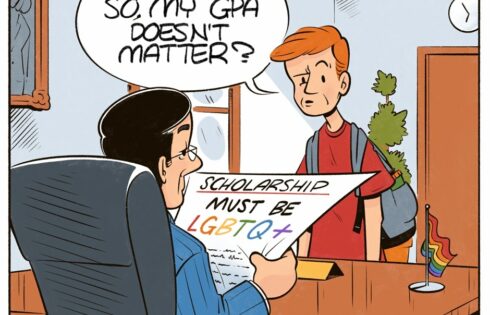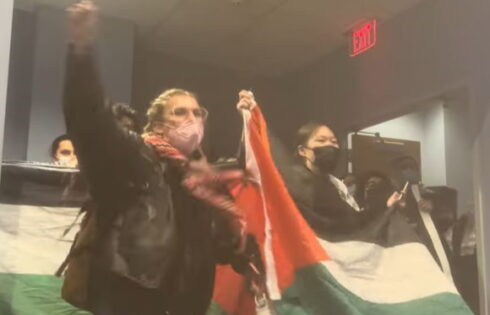Teach for America, if you are a college student or a recent grad, particularly at a wealthy, elite college, chances are you’ve considered it as a post graduate career option.
The premise of TFA is laudable–You take a bunch of well-educated, mostly upper class kids from elite schools, put them in a summer-long teacher boot camp of sorts, and send them off to teach in the nation’s worst schools and most impoverished neighborhoods. If you are about to graduate and you don’t know what to do with your life–there could be worse things to do with your life.
But a recent article at Salon has gained a lot of attention by highlighting some of the shortcomings of the popular program. Catherine Michna writes:
For the past nine years, I’ve been an instructor, a Ph.D. student, adjunct professor, and post-doctoral fellow in humanities departments at several different universities. During this time, many students have asked me to write recommendations for Teach for America. My students generally have little to no experience or training as teachers, but they are lured by TFA’s promises that they can help close the education gap for children in low-income communities. For humanities majors, TFA is a clear path to a job that both pays a living wage and provides a stepping stone to leadership positions in a cause of national importance.
I understand why my students find so much hope in TFA. I empathize with them. In fact, I’m a former Teach for America corps member myself. But unless they are education majors—and most of them aren’t—I no longer write Teach for America letters of recommendation for my students. I urge my higher-ed colleagues to do the same…
Every year, TFA installs thousands of unprepared 22-year-olds, the majority of whom are from economically and culturally privileged backgrounds, into disadvantaged public schools. They are given a class of their own after only five to six weeks of training and a scant number of hours co-teaching summer school (in a different city, frequently in a different subject, and with students in a different age group than the one they end up teaching in the fall). College and university faculty allow these well-meaning young people to become pawns in a massive game to deprofessionalize teaching. TFA may look good on their resumés and allow them to attain social capital for their bright futures in consulting firms, law schools, and graduate schools. But in exchange for this social capital, our students have to take part in essentially privatizing public schools.
The simple fact is that students who apply to TFA are not trained to be teachers. So by refusing to write TFA letters of recommendation, we’re merely telling our students that we can’t recommend them for a job they’re not qualified for. An increasing amount of research shows that TFA recruits perform at best no better, and often worse, than their trained and certified counterparts. What’s more, they tend to leave after just a few years in the classroom. Would a biology professor write a recommendation to medical school for an English major who’s never taken any core science courses? That would be strange. It would be even stranger if the professor knew the English major was just going into medicine for a few years, as a way to boost his resume, before ultimately going on to a career in public relations…
Michna’s article has made the rounds online, seemingly striking a chord with those who are critical of TFA for one reason or another. But while I do think there are problems with TFA–sending inexperienced teachers, even bright and idealistic ones, into the most troubled public school classrooms in the country is bound to be less than 100% successful–I don’t think the problems Mincha points to are all that legitimate.
At the root of her complaints about TFA is the idea that “deprofessionalizing” teaching is something we ought to avoid. Her premise is that it takes an education degree to be able to teach. That is a notion that I find highly implausible. And she even admits so much in her article when she says TFA students perform “at best no better, and often worse” than “trained and certified counterparts.” But if that’s true it must also be true that certified teachers often perform “at best no better” than TFA teachers–not exactly a ringing endorsement.
Since TFA sends students to the worst schools in America–often urban jungles full of poverty, gangs, drug abuse, high dropout rates, illegitimacy, and so forth–it would be remarkable indeed to find that TFA members were single-handedly turning these schools into havens of sterling educational achievement. Rather, I think the proper question to ask is this: If our nation’s teacher training programs are so good, then why do we have so many miserably failing schools to begin with?
TFA isn’t a perfect program, by any means. And I had classmates who dropped out because they were not prepared to enter the war zone of a troubled urban school. and Michna’s criticism that TFA students usually bail on teaching after a couple of years is a fair one. Most grads I know who went into TFA viewed it merely as a temporary stepping stone to law school, or business school–a nice way to pad your resume with the glimmer of compassion and activism. But I do know one classmate who, several years on, is still teaching–quite happily and effectively by the way.
If TFA were overwhelmingly and indisputably effective that would be a real indictment of professional education schools. As it stands, I think TFA is an imperfect but–overall–beneficial program that seeks to solve a very difficult problem: the acute shortage of teachers in our nation’s worst schools. Fact is, the “certified professionals” are usually the first to transfer out of those schools in favor of wealthy, well-behaved classrooms in the suburbs. TFA students, in other words, are doing a job that the so-called “professionals” are apparently unwilling to do. Otherwise, there wouldn’t be a teacher shortage in those schools. So how then is it fair to point out that rather obvious fact that not all TFA teachers do that difficult job so well as they, and we, would hope? At least they’re trying.
And if some TFA participants view it as mere resume padding, that takes nothing away from the thousands of others who do enter the program with a sense of altruism, and a sincere hope to make a difference in the lives of troubled students attending troubled schools. If Michna wants to defend her belief in the worth of professional education schools, fine. But until such time as America’s professional education schools step up to solve the ever-worsening problem of urban educational underachievement–the problem TFA is designed to address–Michna’s underlying claim, that TFA is doing more harm than good, isn’t going to carry much weight.
Nathan Harden is editor of The College Fix and author of the book SEX & GOD AT YALE: Porn, Political Correctness, and a Good Education Gone Bad.
Like The College Fix on Facebook. / Follow Nathan on Twitter @NathanHarden





Please join the conversation about our stories on Facebook, Twitter, Instagram, Reddit, MeWe, Rumble, Gab, Minds and Gettr.